5 things you need (and don't need) to make a game
Don't just play them, create them
Do it yourself
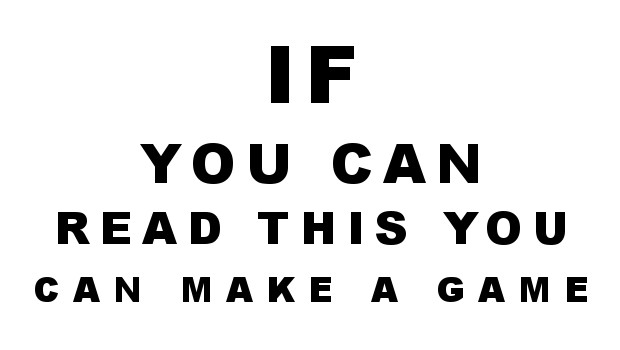
We all love video games. Playing them, talking about them, complaining about them, thinking about them, collecting questionable memorabilia based on them--it's all good. So why have so few of us actually made one? Here's the common (wrong) answer: It's really freaking hard! It takes expensive software and equipment, not to mention coding expertise! It's just not a feasible hobbyist pursuit--either you make your wages by eating, sleeping, and breathing games or, well, you don't.
That answer, fortunately, has never been less true. Today there are more tools and possibilities for making games than ever, and less barriers standing in the way of potential creators. If you're able to read this article, there's a very good chance you can make a game. Here's what you'll need, as well as what-you-may-think-you-need-but-actually-don't to get started.
NEED: An idea

Think of something you do. Or maybe something you can't do but wish you could? Try something you'd never actually do but can't help thinking about now and then. There, you have a game idea. Did you actually think of one? Read that over again and we'll wait.
There's no such thing as a bad idea for a game. Consider this one: The goal is to convince your opponent you really want something without actually taking it. It doesn't sound particularly fun as an abstract concept, but to a dog it's the best round of tug-of-war ever. There are no bad ideas, just bad execution. But don't worry about that yet. This kernel is the only thing you need to hold onto until you begin creating the game. Expect it to shift, mutate, and be completely unrecognizable by the time it's done. That's fine, it had start somewhere.
DON'T NEED: A degree

Lots of places offer degrees for creating video games these days. Since ad companies know you like games (we told them, sorry, they promised us pizza), you've probably seen their banners everywhere telling you their two- or four-year program will let you crank out the hit titles of your cel-shaded dreams.
We've got a secret: You don't need a degree in making games to make games. It's true, a relevant diploma could get your foot in the door at a game studio. But so could just making something, and you can do that right now without years of tuition and a brain fried from semesters of simulated crunch time. Or maybe you don't want a job working at a studio, big-time or independent. Maybe you just want the equivalent of doodling in the margins. Then you really don't need a degree to make games!
NEED: An audience
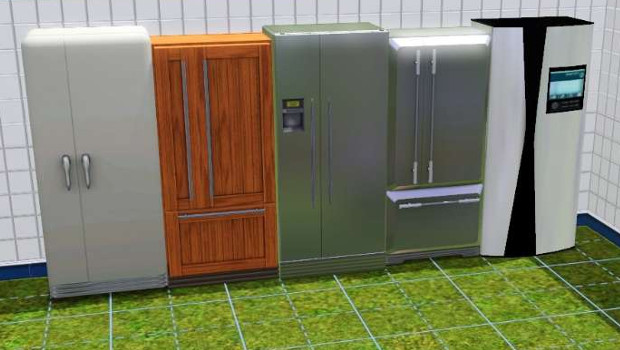
When kids bust out their crayons and go to town on a sheet of paper--or the walls and hardwood floors--they're not just doing it for fun. They're doing it to show somebody something: to get the crazy, colorful ideas in their head out into the world where everybody else can see them. They want somebody to stick those ideas on the fridge where they can be appreciated forever (or at least until somebody shuts the door too hard and it falls off).
Weekly digests, tales from the communities you love, and more
If you want to make a game, you need to find your fridge. There's not much point if no one will ever be able to appreciate it. But--and this is a big but--you can be the only one. You can reach an audience of billions or just have a private, interactive reminder of a fleeting state of mind. As long as your game does something for somebody, it was worth it. But do consider sharing with friends, family, other game creators, or the internet at large. We'd all very much like to see.
DON'T NEED: Permission

At best, people don't know what they like until they try it. At worst, they're openly hostile to anything different and new. So maybe your idea for a piece of interactive fiction about caring for a sickly hamster as the world spirals into the sun sounds silly to some people. Show them it's not only silly but tremendous.
The best way to prove you can make an interesting game about whatever the hell you want is to just do it. One of the reasons game developers have been getting so excited about Kickstarter is it lets them make more stuff they want to make; guaranteed cash means they don't need to compromise their ideas to pitch bottom line-oriented publishers. Don't worry about pitching or compromising for anybody, though, because no one in their right mind would pay for the game you're about to make. Yet.
NEED: A way to make it
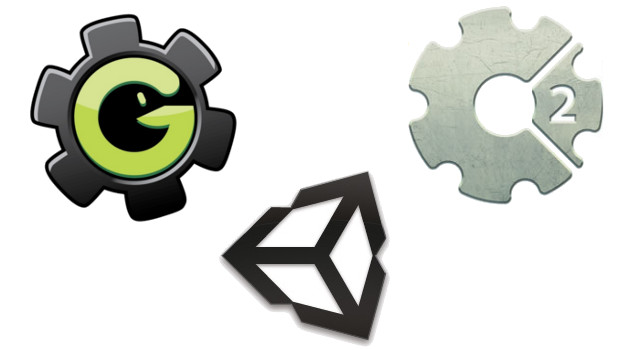
Okay, you have your idea, and know for whom you're making it. Now it just needs to turn into something folks can play. This is where game creation tools come in. We're not talking about C++ or Java or even Flash ActionScript. We mean programs made specifically to create games, which keep as much of that ghastly code stuff as possible out of sight in favor of more natural user interfaces, so you can concentrate on things that will actually be relevant to players.
Two good options for two-dimensional games are the aptly named GameMaker (which is even available on Steam) and Construct 2. Both have free versions with tutorials which should be enough for beginner-to-intermediate projects. Or if the concept would work best in words, free interactive fiction tools like Twine make it startlingly easy to tell interactive tales. If you want to try a three-dimensional game, Unity is also gratis--but as Biggie once told Shigeru Miyamoto, mo' dimensions, mo' problems.
DON'T NEED: Coding expertise, expensive software
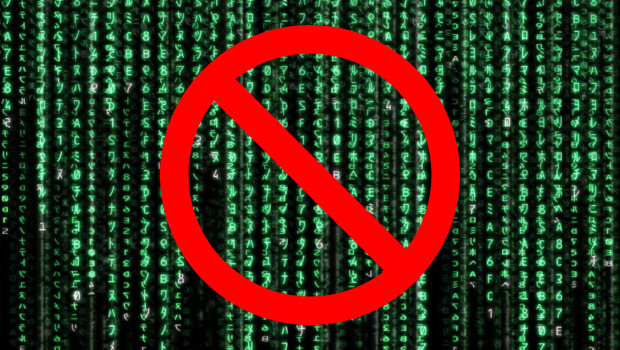
If you just exited a DeLorean, Chron-O-Jon, Tardis, or other time machine and still think making video games boils down to writing and revising endless pages of code, see the previous slide. That's no slight against coding, but learning a programming language is an inefficient use of time if you just want to start making games. There's no need to reinvent the wheel. Will it make much difference to the player whether you a) spent two hours coding a robot to walk around and beep, or b) just gave it pre-built platforming behavior with a few tweaks? No, and those are two hours that could have been spent making the rest of the important stuff.
Downloading free content creation tools like GIMP, Blender, Audacity, and SFXR will, however, make a big difference to your bank account. Maybe most of the professionals use Photoshop and Maya, but they also have someone else picking up the tab for that software.
NEED: Experience with video games
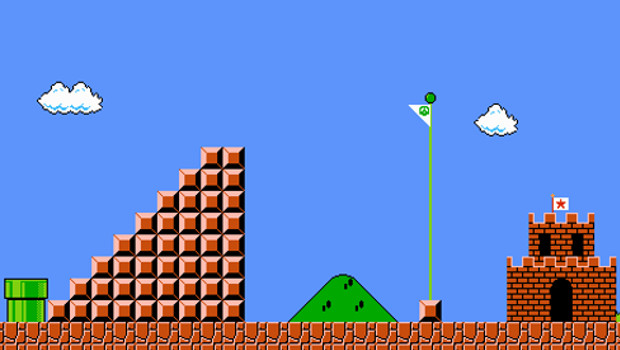
If you're reading GamesRadar right now, chances are you already have one of the most useful tools of game design: first-hand knowledge of what makes good titles work and what makes bad ones fall apart. You know quick-time events are usually stupid, and a hundred half-assed abilities aren't as satisfying as one really good jump. You know a reasonable way to make a player traverse a region is to put a key at one end and a door at the other, and that it's better to have five perfect minutes than a watered down half hour.
Stand on the shoulders of giants. Countless good and bad choices were made before you ever started, and you've played through many of them. So you might as well crib some notes. As we said before, there's no need to reinvent the wheel--just add some cool new spokes and we'll all be grateful.
DON'T NEED: Experience with video games
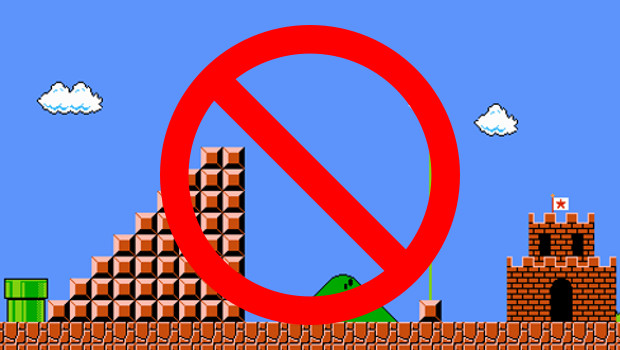
The previous point still stands: A good working knowledge of video games is a great tool. But if everybody just made games inspired by previous successful titles, we'd have a lot of the same junk happening over and over again. Gosh, wouldn't that be awful?
So maybe you don't know a goomba from a gardevoir. Good! As long as you've played tag or soccer or Battleship you know how games work: They're just a series of interactive rules. When this happens, that happens. When you forget to feed the terminally ill hamster, it becomes morose and the score drops by 30. When the Earth is boiled by the sun's mirthless embrace, the game ends and the points are tallied. Now put some interesting rules together in a way that doesn't fetishize gun violence, acrobatic leaping, or randomly generated loot. You, oh pure-of-gaming-tropes soul, are our only hope.
NEED: A passion
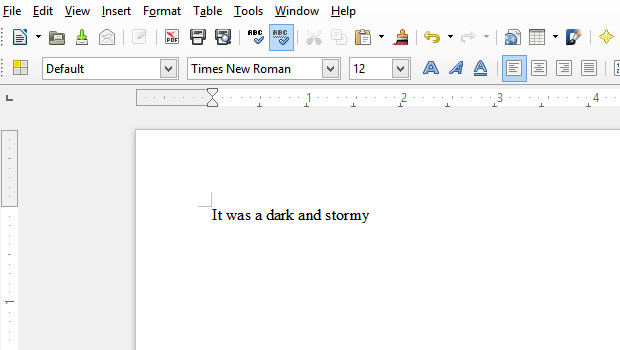
Do you have a NaNoWriMo novel sitting on your desktop at a couple thousand words? A sketchbook shoved in your backpack, its first pages filled and the rest as white as freshly driven snow? It's OK, we do too. To make sure you actually complete your game (unlike that literary magnum opus), there's no substitute for passion.
This is kind of a broader life lesson, but it applies just as much here: You've gotta make it happen. Only go forward with a project you really care about. Realize that it's a commitment, and if that commitment isn't exciting it may need some more thought. Become invested, and share with others. Know that the work deserves as much respect as any other creative endeavor--especially from you. The process could range from soaring heights of satisfaction to depths of crippling disillusionment. Passion will keep you working even when the going gets tough.
DON'T NEED: Quality control
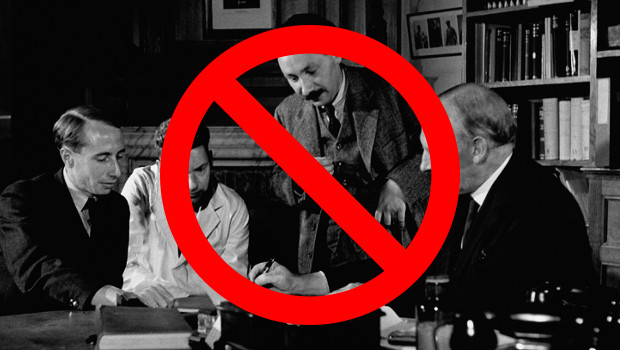
Scottish biologist Alexander Fleming discovered penicillin because he didn't clean up his lab before going on vacation. In other words, mistakes are just muses you didn't know you had. Maybe every time your game's world is consumed by solar fire the scenario glitches back to the beginning, but the hamster's previous state remains. Now you've managed to create an interactive, extra fatalistic version of Groundhog Day (how much would licensing Bill Murray's likeness cost?) by exploring a little New Game Plus glitch.
Polish is useful, but it can be poisonous to the creative process. That's why you're not supposed to drink shoe polish (also other reasons). Don't worry so much about making the game perfect--it will take forever and meddlesome players will still break it. Just get it out there and worry about the rest later.
It won't make itself

That's a lot to take in at once, especially if you've never given serious thought to making games since that middle school programming class ended in a headache and unsatisfactory report card. But it's pretty important that more people start making games. The more voices speaking, the more kinds of experiences they create, the better. Still, go ahead and take a minute, you don't have to start right away. Within the next half hour would be fine. We'll wait.
Have any games of your own you'd care to share with the rest of the class, or other suggestions for things you need (or don't) to get on your way? Let us know in the comments!
And if you're looking for something to give you game ideas, you may want to check out our Platinum Chalice Awards for unusual achievements in gaming and why the end of 2012 saw a smart gaming renaissance.

I got a BA in journalism from Central Michigan University - though the best education I received there was from CM Life, its student-run newspaper. Long before that, I started pursuing my degree in video games by bugging my older brother to let me play Zelda on the Super Nintendo. I've previously been a news intern for GameSpot, a news writer for CVG, and was formerly a staff writer at GamesRadar.


